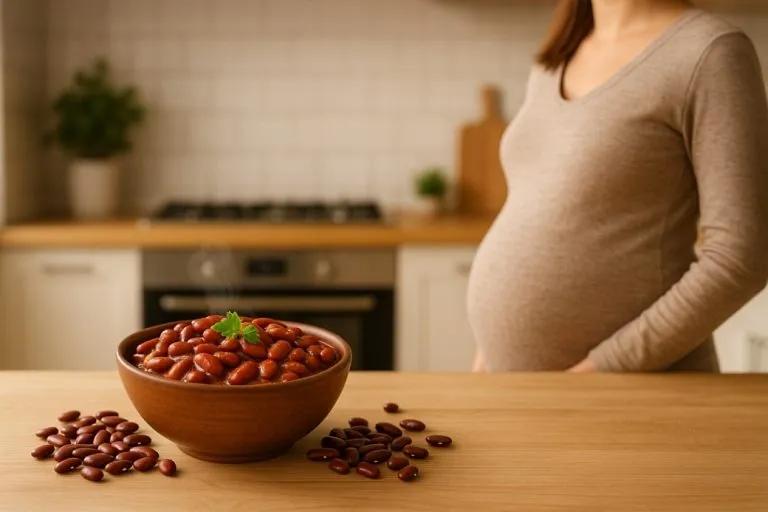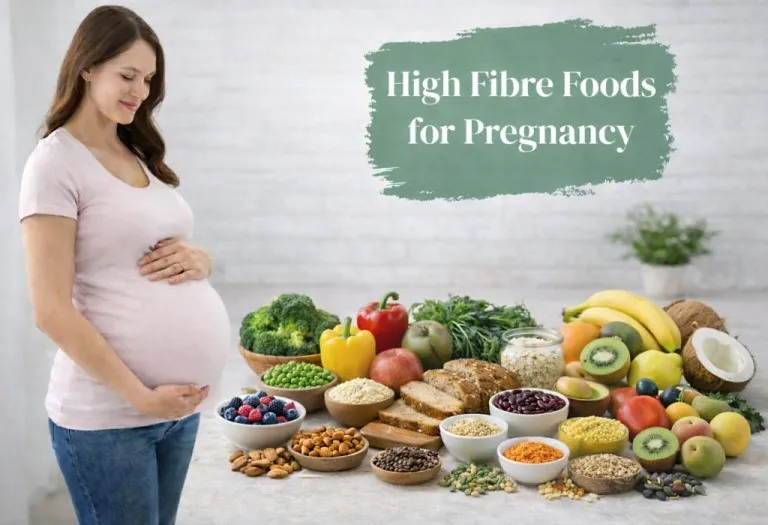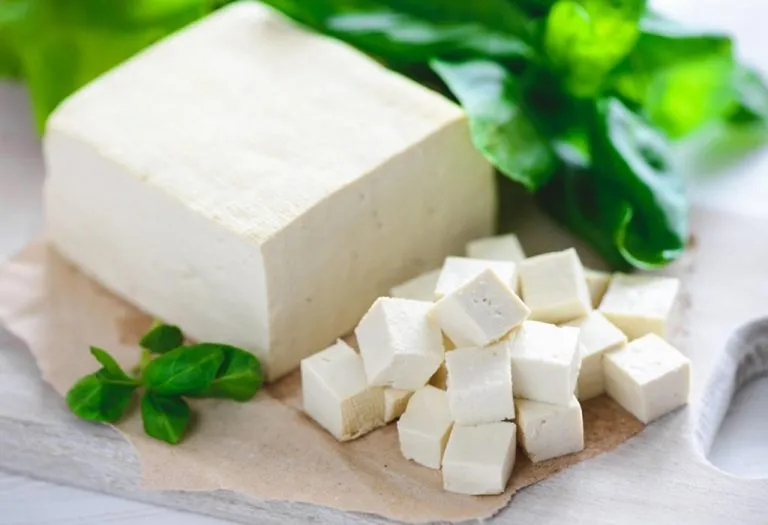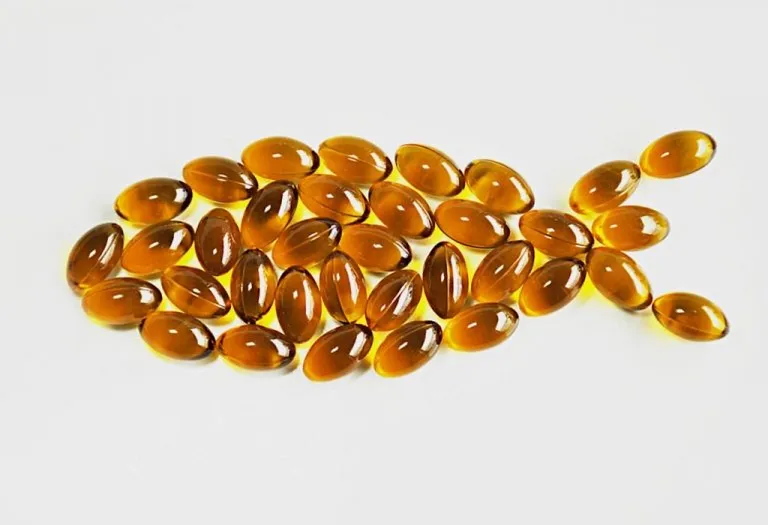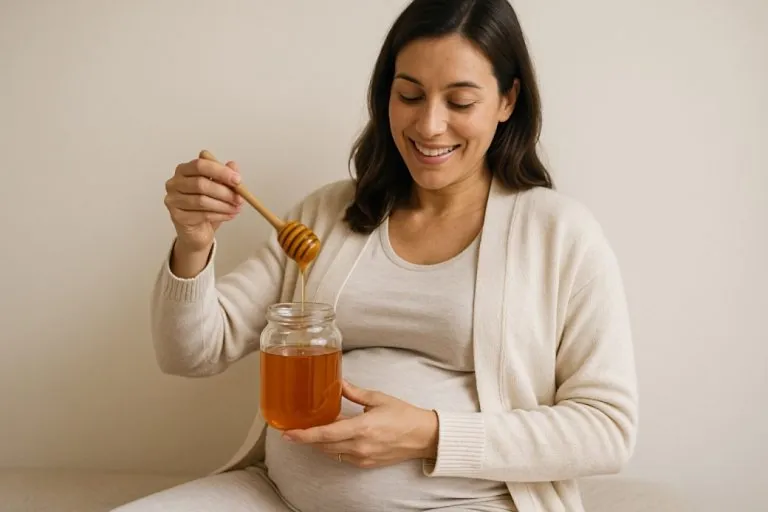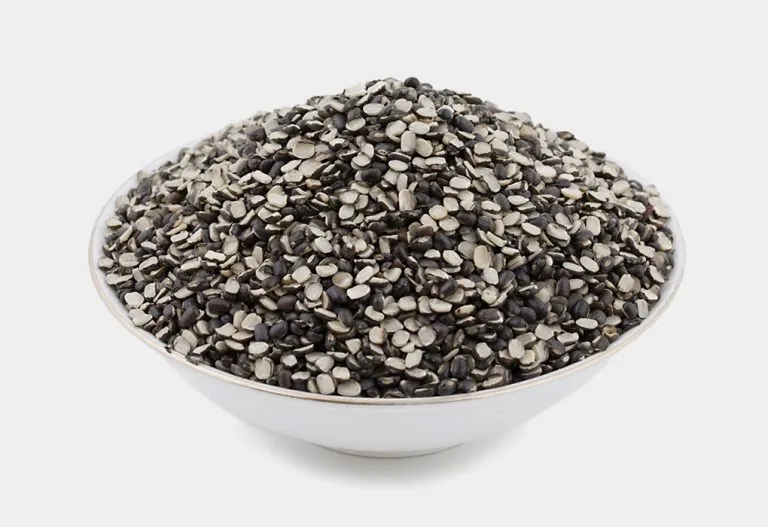Eating Rajma (Kidney Beans) During Pregnancy: Benefits and Risks
A nutritious guide to eating (Kidney Beans) Rajma during pregnancy, its key benefits, and important things to remember.

- Is Rajma Good During Pregnancy?
- Nutritional Value of Rajma
- Amazing Benefits of Consuming Rajma in Pregnancy
- Harmful Effects of Eating Rajma in Excessive Amounts When Pregnant
- Things to Remember While Having Rajma
- FAQs
Being pregnant means making healthy food choices and giving up on certain foods that you love to eat! If you’re pregnant, you’re bound to be concerned about what foods to eat (what to avoid) to keep your baby healthy, and that’s totally normal! Getting the right micro-nutrients is important during pregnancy and a varied diet can provide you and your baby with all the necessary nutrients. In this article, we will be discussing one healthy food (beans) in particular: kidney beans.
If you love eating rajma chawal, you’re likely to want to know if you can continue to eat it while pregnant. Rajma is packed with several micronutrients apart from being a rich source of protein and fibre. Despite its nutritional value, there are certain health risks associated with it. Learn the benefits and harmful effects of consuming kidney beans during pregnancy. Also, learn about the precautions you can follow when eating rajma (kidney beans) in pregnancy.
Is Rajma Good During Pregnancy?
Yes, certainly; rajma is good for pregnancy. Rajma during pregnancy is a healthy addition to your nutritional pregnancy diet, especially in the later trimesters – second and third – when your little one is in need of essential nutrients for optimal and paced growth. Being a popular plant protein, rajma is a nutrient-dense food and also rich in antioxidants, amino acids, fibre, iron, folic acid, choline, vitamins, and plenty of minerals, making it an amazing meal addition (1) (2). With a daily dietary requirement of around 71 grams of protein per day during the second and third trimesters, rajma alone can compensate for it with its one-and-a-half bowl of serving (3).
Nutritional Value of Rajma
As per USDA, around 100 grams of boiled kidney beans give us the following nutrients (4):
| Nutrient | Amount |
| Energy | 127 Kcal |
| Protein | 8.67 g |
| Carbohydrate | 22.8 g |
| Fibre | 7.4 g |
| Calcium | 28 mg |
| Iron | 2.94 mg |
| Magnesium | 45 mg |
| Phosphorus | 142 mg |
| Potassium | 403 mg |
| Folate | 130 µg |
| Zinc | 1.7 mg |
Amazing Benefits of Consuming Rajma in Pregnancy
Kidney beans are a great source of protein and fibre, and are high in antioxidants, too (5). Most women ask if they can eat kidney beans when pregnant. The answer is yes, as rajma is good for pregnancy. Let’s look at some of the rajma advantages during pregnancy:
1. Lowers the Risk of Gestational Diabetes
According to the American Diabetes Association, kidney beans are a great source of antioxidants and can prevent chances of gestational diabetes (6). The antioxidants present in it are helpful for the skin of the mother and baby.
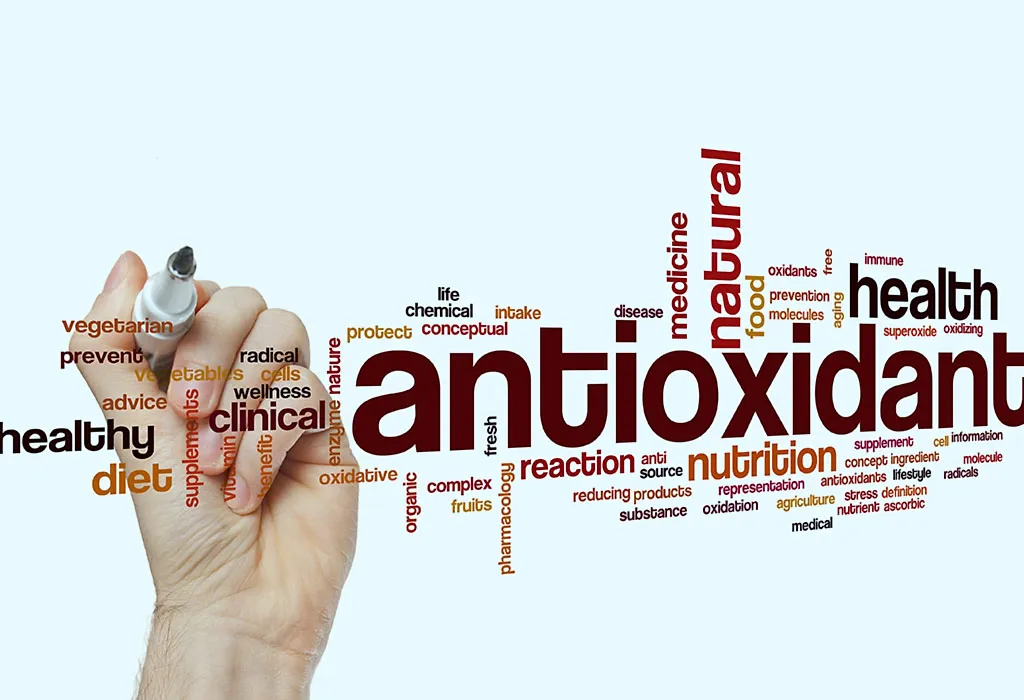
2. Strengthens the Immune System
Kidney beans contain several essential amino acids that make up protein that help in fighting diseases and infections, eventually building a strong immune system (7).
3. Lowers the Risk of Iron Deficiency
During pregnancy, kidney beans replenish the level of haemoglobin, thereby helping to eliminate the iron deficiency in the body and promote the cognitive development of the baby (8) (9).
4. Helps Enhance Enzyme Activity in the Body
Copper found in kidney beans reduces inflammation and helps enhance the enzymatic activity in the body (10). It further helps in maintaining the elastic nature of joints, blood vessels, and ligaments while delivering the baby.
5. Provides Energy
The abundant amount of magnesium relieves fatigue by relaxing blood vessels, muscles and nerves during pregnancy (11). Consuming kidney beans in pregnancy can, therefore, help with fatigue.
6. Contains Dietary Fibre
Kidney beans contain dietary fibre which is essential to regularise the blood cholesterol level during pregnancy (5).
7. Eliminates Nausea
Bile acids cause morning sickness in pregnant women . Kidney beans help eliminate the nausea that most pregnant women feel in the morning.

8. May Lower the Risk of Sore Muscles
Muscle soreness and asthma are adverse conditions during pregnancy which can be effectively be averted by consuming kidney beans.
9. Reduces Bile Acids
When the special acids in your gut team up with the fibre in kidney beans, they work together to help get rid of excess fat from your body.
10. Prevents Asthma and Sore Muscles
Having kidney beans for pregnancy also works great in preventing conditions like muscle soreness and asthma.
Harmful Effects of Eating Rajma in Excessive Amounts When Pregnant
One should be extremely cautious not to overindulge in kidney beans during pregnancy. Over consuming this wonder, food can result in harmful effects too.
- Kidney beans contain purines, overeating of which may lead to gout or kidney stones (12). Therefore, overeating should be kept in mind.
- Always adjust the quantity of kidney beans intake as it can cause intestinal gas and cramps because the digestive system becomes lax and slow during pregnancy.
- Too much folate from kidney beans can increase the risk of cancer.
- Avoid consuming canned kidney beans, and always ensure that quality products are bought, as they contain plenty of sodium and preservatives. If canned beans are the only thing you have, then you must rinse them properly before consuming them to remove the excess sodium by at least 41 per cent (13).
- Excessive iron in the diet can damage the brain and trigger heart attacks.
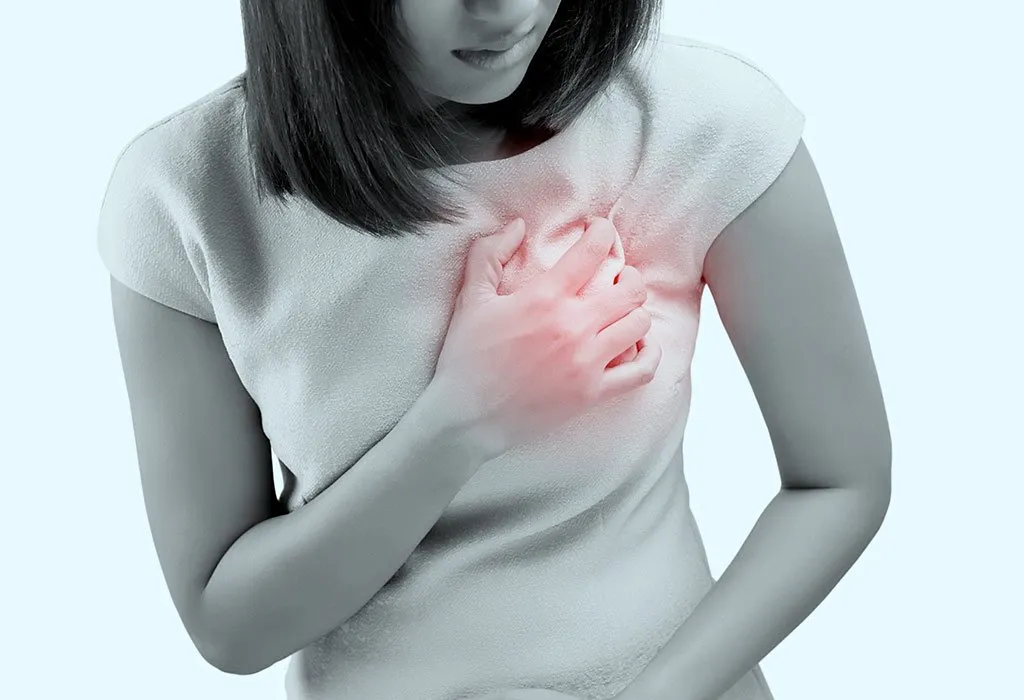
Things to Remember While Having Rajma
It is imperative to be extra careful about health and extra cautious about diet if you wish to deliver a healthy baby after conceiving.
- Only 25 to 38 grams of fibre should be included in the diet.
- Rajma or kidney beans should be well cooked and then eaten.
- Kidney beans are harmful or poisonous when they are eaten raw or undercooked as they could contain Listeria, Salmonella and E. coli bacteria (14). The outer skin contains toxins, which can be removed by cooking it until they become tender.
- Kidney beans tend to be still harmful when they are cooked at a temperature of less than 100 degrees Celsius.
- You can have 1-2 bowls of kidney beans per day, 3-4 times a week.
FAQs
1. Can consuming kidney beans or rajma during pregnancy lead to gas?
Yes, kidney beans can cause gas. Therefore, to reduce the instance, you can soak them overnight before cooking them the next day to reduce the gas formation. Overeating can also cause gas; therefore, consuming them in moderation is advised.
2. Are canned kidney beans safe and healthy to consume during pregnancy?
Canned foods contain excess sodium and preservatives to ensure their longer shelf life. They may also contain Bisphenol A (BPA). While BPA is infamous for easy exposure from mother to fetus and abnormality of reproductive organs, sodium and preservatives may risk the mother to high blood pressure and preeclampsia during pregnancy and several other health illnesses due to heavy additives (15). Therefore, it is advised to limit canned foods during pregnancy as much as possible. However, if you have to eat canned ones only, you can do so by rinsing them under fresh water to get rid of excess salt and cooking them properly.
3. Can I have constipation by eating kidney beans in pregnancy?
No. rajma or kidney beans do not cause constipation. Instead, they are a rich sources of fibre that helps prevent constipation.
4. Do I need to cook canned kidney beans?
Most of the canned beans are usually pre-cooked. When you buy canned beans from the store, check their texture. If they’re fully cooked, they’ll be soft and creamy when you eat them.
5. What is the best way to include Rajma in a pregnancy diet?
You can enjoy Rajma as Rajma curry with rice, add it to salads or soups, or blend it into wraps and tacos. Always ensure the beans are soaked, boiled, and cooked thoroughly before consumption.
Red bean during pregnancy help in treating and preventing multiple health issues, they can be an easy and possible inclusion in the diet while carrying a healthy baby to its full term. The thumb rules regarding kidney beans should always be remembered, and thereafter, one should feel free to experiment with the superfood available all year round, which is inexpensive and easy to prepare.
Also Read:
Moong Dal in Pregnancy
Consuming Tofu during Pregnancy
Can You Eat Chickpeas when Pregnant?
Is It Safe to Consume Panchamrut while Pregnant?
Was This Article Helpful?
Parenting is a huge responsibility, for you as a caregiver, but also for us as a parenting content platform. We understand that and take our responsibility of creating credible content seriously. FirstCry Parenting articles are written and published only after extensive research using factually sound references to deliver quality content that is accurate, validated by experts, and completely reliable. To understand how we go about creating content that is credible, read our editorial policy here.
1. Colorado State University – What are the benefits of beans?
2. Dietary Guidelines for Americans, 2020-2025
4. USDA – Beans, kidney, red, mature seeds, cooked, boiled, without salt
5. University of Michigan – Prenatal Nutrition
6. American Diabetes Association – What superstar foods are good for diabetes?
7. EUFIC – What Are Proteins and What Is Their Function in the Body?
8. UCSF – Anemia and Pregnancy
10. NIH – Copper
11. NIH – Magnesium
12. UK Gout Society – All about gout and diet
13. Boston University – Pass on the Salt, Please
14. UNICEF – What to eat when pregnant







